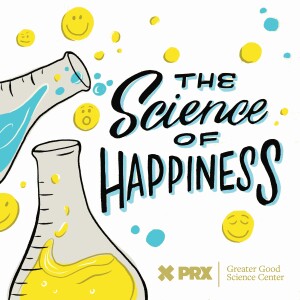President Biden’s campaign message of unity is being tested in Washington during his first full week in office, particularly because Republicans and Democrats don’t seem to agree on what unity means. The scars from the January 6th attack on the U.S. Capitol are still fresh, a second impeachment trial is looming in the Senate, and Republicans and Democrats are seemingly miles apart from agreeing on a new COVID-19 aid package. Meanwhile, disharmony is evident among members of the GOP as Republican Congressman Matt Gaetz flew to Wyoming to campaign against GOP Conference Chair Rep. Liz Cheney after she voted to impeach former President Trump. Peter Baker, chief White House correspondent for The New York Times, and Senator Mark Warner, spoke with Amy Walter about whether or not Biden’s calls for unity will be ignored.
In 2020, almost 30 states expanded access to absentee ballots and early voting to make voting easier during the pandemic. As a result, states saw a record-breaking number of requests for mail-in-ballots. And while Republicans have historically relied on absentee ballots, former President Trump’s attacks on voting by mail meant that more Democrats took advantage of the early vote option, while many Republicans opted to vote in person on Election Day. Today, Republican state legislators in swing states like Georgia, Michigan, Texas, and Pennsylvania are pushing for new voting restrictions in the aftermath of a Biden win. Grace Panetta, senior politics reporter at Business Insider, describes the unintended consequences of restricting voting rights.
Every ten years, the U.S. government conducts a census that determines how many seats each state will receive in the House of Representatives. This data is used to redraw congressional and state legislative district lines. The most recent census results have been delayed by the pandemic and a legal battle regarding whether or not undocumented immigrants would be included in the final count. Republicans and Democrats have long sought to draw districts in their favor, but tolerance for hyper-partisan gerrymandering has waned considerably over the last decade. Dave Wasserman, House editor for The Cook Political Report, describes where the latest redistricting efforts stand and which states stand to gain additional seats.
More Episodes
The Politics of Climate Change
 2019-09-20
2019-09-20
Democratic Candidates Battle It Out in Houston
 2019-09-13
2019-09-13
What Have We Learned on the Campaign Trail?
 2019-09-08
2019-09-08
Will Unions Deliver 2020 to the Democrats?
 2019-08-30
2019-08-30
Should We Be Worried About a recession?
 2019-08-23
2019-08-23
Texodus: Can Democrats Turn the Lone Star State Blue?
 2019-08-16
2019-08-16
The Past and Present of Gun Control
 2019-08-09
2019-08-09
Michigan, Michigan, Michigan: the Upcoming 2020 Elections in the Battleground State
 2019-08-02
2019-08-02
Mueller's Testimony Underscores a Crisis of Faith in Democracy
 2019-07-26
2019-07-26
There's a Generational Divide Upending U.S. Politics
 2019-07-19
2019-07-19
Democrats Divided
 2019-07-13
2019-07-13
Candidate Talk: Seth Moulton
 2019-07-12
2019-07-12
Unpacking the Democratic Debates from the Aspen Ideas Festival
 2019-06-28
2019-06-28
Digital Ads and the Wild West of Political Campaigning
 2019-06-22
2019-06-22
Candidate Talk: Michael Bennet
 2019-06-21
2019-06-21
Democratic Socialism is Having a Moment; Will Voters be Receptive to its Message?
 2019-06-15
2019-06-15
Candidate Talk: Bernie Sanders
 2019-06-14
2019-06-14
The Impact of Black Voters: “When We Show Up, We Transform How Power Operates”
 2019-06-07
2019-06-07
Celebrating One Year of Amy Walter
 2019-05-31
2019-05-31
The Evolution of the Executive
 2019-05-24
2019-05-24
Create your
podcast in
minutes
- Full-featured podcast site
- Unlimited storage and bandwidth
- Comprehensive podcast stats
- Distribute to Apple Podcasts, Spotify, and more
- Make money with your podcast
It is Free
You may also like

The Science of Happiness


Snap Judgment


The World


Orbital Path


Latino USA


- Privacy Policy
- Cookie Policy
- Terms of Use
- Consent Preferences
- Copyright © 2015-2024 Podbean.com



 iOS
iOS Android
Android